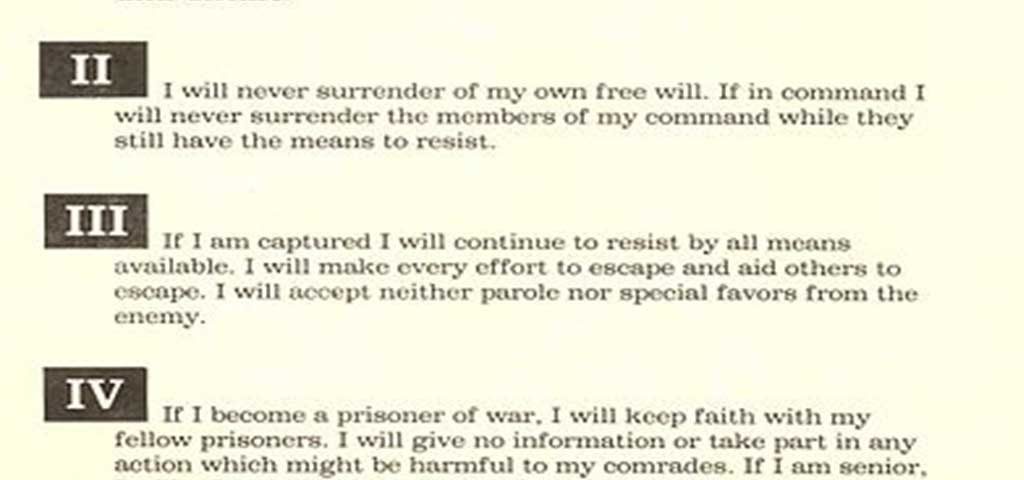
A Question of Integrity
October 21, 2016
A Way Forward for USA Gymnastics
December 2, 2016It’s time. Officials organizations have been bumping along all these years, doing things the same old way, using patchwork solutions (or not reacting at all) when problems crop up.
The solution, according to Hugh Greeley, is adopting an integrity program. Greeley is the senior consultant at Sports Officiating Consulting, LLC, and has more than 35 years experience providing consultation and educational services to complex organizations in myriad industries. He spoke to a group of officiating leaders at the 2016 NASO Summit in San Antonio.
Greeley points out that instituting an integrity program is not just a good idea, in many cases it’s required. “Hospitals, for example, which are high-profile activities just like (officiating), waited too long to implement their own integrity programs to the point that the public through our (legislators) demanded that they do so,” Greeley said. “In other words, they were told they had to. The banking industry was told it had to. The accounting industry was told it had to. The defense industry was told it had to with complex sets of rules and regulations and fines for organizations that did not mount effective integrity and compliance programs.”
If you think officiating is small potatoes compared to banking, health care and the military, think again. “Money is the root of all evil,” Greeley said, quoting an oft-used adage. “I’m guessing that sports and officiating worldwide must now be easily a trillion-dollar endeavor: television contracts, production of a single Olympic event, betting now pervades sports.”
Money-grabbing is not the only issue in the industry, Greeley said. He referred to an exercise at the 2015 NASO Summit, at which he asked those in attendance to jot down one or two examples of a lack of professionalism, integrity or compliance they’d observed in the last six months. That survey produced a number of disturbing incidents, including a referee having a personal relationship with a coach’s wife, others running a Ponzi scheme, another propositioning youth athletes on Facebook and still others directing profanity at coaches and fans.
“If you analyze what was documented on those sheets carefully and recognize that without a concerted effort on the part of those of you who administer officiating programs, you can’t help but recognize the need today to be quite forceful within your own organizations and almost demand that we, too, implement an organized program,” Greeley said.
Those and other misdeeds might have gone unnoticed in the past. But today officials are under more scrutiny than ever before, both on and off the playing surface.
“Your profession is just entering an era in which the public is vitally interested in what you do,” Greeley said. “We read today more and more frequently about problems associated with sports and occasionally associated with officiating much more regularly than ever in the past.”
Greeley’s message to the audience was to be proactive and implement an integrity program before it no longer is a choice. “If you wait until it’s too late, somebody else will design this program, and you won’t like it nearly as much,” he said. “It will not serve your needs. It will serve a regulatory need.”
One of the reasons associations or businesses hesitate to adopt an integrity program is that someone has to be the disciplinarian. But without accountability, an integrity program is a just ink on paper.
“When I hear people talking about suspensions and terminations and punishment, you have to go back and sort of analyze each item to determine the root cause,” Greeley said. “And how did we get to that position? How did we get to the position of having to suspend a good official? How did we get to the position of having to terminate a good official? And the best minds in management will consistently say management did that, not the official. They’ll say somehow management failed. They either failed in the recruitment process by not screening carefully. Or they failed in the orientation and training process. Or they failed in the ongoing supervisory process. Or they may have failed because they did not have a system in place to consistently identify minor problems before they became major problems.”
A confidential reporting system helps prevent a common problem: members fearing reprisals for reporting violations. He used the example of two officials — one a veteran, one a relative newcomer — having a discussion.
Newer official: “I just don’t understand why I don’t get assignments the way other officials do.”
Veteran: “You know, that happened to me when I was young, too. Just bear with it a while.”
Newer official: “I think I’m going to raise the issue with the head of officials.”
Veteran: “I wouldn’t do that. I did that when I was young. I didn’t get an assignment for four weeks.”
That is exactly the type of conversation an integrity program is designed to prevent. “An effective strategy is a program that’s designed to prevent wrongdoing,” said Greeley, emphasizing the word “prevent.”
Greeley said creating and utilizing an integrity program is neither complex nor expensive. “You’ve got pieces of it already. What you don’t have is the glue that holds it together. I think your job is to build the glue. You’ve got to have something that allows you or a person in your organization to understand that compliance and integrity are the most important things we have.”
He said it takes “a leader to step up and say, ‘We need this to lead this organization into the future, to make sure that this organization in the future has the same ethics, integrity, professionalism and culture that this organization was built upon.’
“Absent that,” he continued, “you run the risk of perpetuating a year from now another (Summit) session and another question asked of the collective audience … (and) you run the risk of getting back a very rich response. You don’t want a rich response. You want a response that says the implementation of our organized integrity and compliance program has dealt with many issues. Most of these issues were identified when they were small, and our collective action caused them to be eliminated, caused us to put systems into place and management into place that eliminated the likelihood that they will be there in the future.”
So what are the key components in an effective integrity program?
• A code of conduct. The document spells out what behavior is required as well as what is not acceptable. Members must have access to the code (such as on the group’s website) in order to know what’s in it. It is also important that stakeholders help create the code.
• Education and training. It’s easy enough to say members should toe the line and assume they know how. But going over the program in detail clears up misconceptions and helps ensure compliance. Greeley called it, “Taking this code of conduct in this covenant and making a little piece of it part of most of the discussions you have with officials. So that it’s not just given to officials when they join. It’s used in their ongoing training.”
• A confidential reporting system, including a hotline. “Somewhere that I can call and report without my name being known to the person that I’m reporting about or else I won’t report,” Greeley explained.
• A designated integrity/compliance officer. “You need somebody that can objectively investigate that and figure out what the root cause of that issue was, whether it’s accurate or inaccurate,” he said. “Whether I’m complaining just because I like to complain or whether what I’m complaining about has merit and should be acted upon. You need a compliance officer independent of the size of the organization.” Any investigation that is undertaken by the compliance officer must be impartial and unbiased.
Prevention of issues, Greeley said, is the best result of instituting an integrity program. ”You hold it within your hands, your administrative capabilities, your organization’s capabilities, to take that next step to professionalize how you deal with minor infractions of integrity, the rules, compliance and ethics to make sure that those individuals understand that they can’t happen again,” he said.


